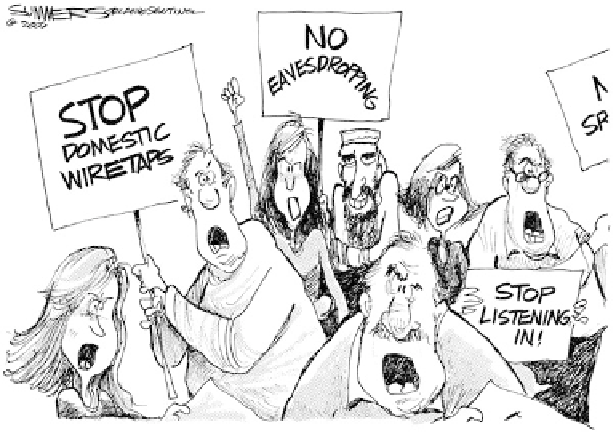Information Technology Reference
In-Depth Information
(Tribune Media Services TMS Reprints)
As alluded to earlier, the federal government issues about 50,000 National Security
Letters every year [49]. Google is an obvious organization for law enforcement agencies
to contact, given the significant amount of information it collects from individuals who
use its search engine. In December 2009, Google's CEO, Eric Schmidt, told CNBC, “If
you have something that you don't want anyone to know, maybe you shouldn't be doing
it in the first place.” Schmidt admitted Google is obliged to release personal data to law
enforcement agencies, saying, “The reality is that search engines—including Google—
do retain this information for some time and it's important, for example, that we are all
subject in the United States to the Patriot Act and it is possible that all that information
could be made available to the authorities” [50].
According to Tom Ridge, former secretary of the Department of Homeland Security, the
Patriot Act has helped the government in its fight against terrorism by allowing greater
information sharing among law enforcement and intelligence agencies and by giving
law enforcement agencies new investigative tools—“many of which have been used for
years to catch mafia dons and drug kingpins” [51]. Terrorism investigations have led to
charges being brought against 361 individuals in the United States. Of these, 191 have
been convicted or pled guilty, including shoe-bomber Richard Reid and John Walker
Lindh, who fought with the Taliban in Afghanistan. More than 500 individuals linked to
the September 11th attacks have been removed from the United States. Terrorist cells in
Buffalo, Seattle, Tampa, and Portland (the “Portland Seven”)
2
have been broken up [51].
2. The “Portland Seven” included six American Muslim men accused of attempting to travel to
Afghanistan to fight with the Taliban.

